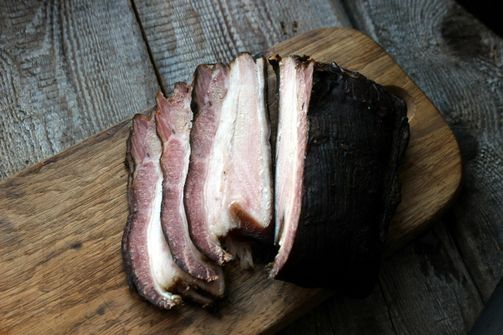
Clear Skin Ahead: Navigating Supplements for Acne Management
Acne is a prevalent skin condition affecting up to 85% of individuals at some point in their lives, with a significant number being women of reproduct...

Healthy, vibrant hair is a cornerstone of self-esteem and perceived beauty for many women. Achieving and maintaining such hair often involves more than just external care; it extends into the realm of dietary supplements. These supplements promise not only to enhance hair quality and growth but also to bolster scalp health.
However, with the myriad supplements available, making informed, cautious choices is crucial for effectiveness and safety.
Hair grows through three distinct phases: the anagen (growth phase), catagen (transitional phase), and telogen (resting phase). Each hair strand independently cycles through these phases at different times. Factors influencing these cycles include genetics, nutritional status, stress levels, hormonal fluctuations, and environmental conditions like exposure to pollutants and UV radiation.
The American Academy of Dermatology notes that the average scalp has about 100,000 hair follicles, with each follicle capable of producing about 20 individual hairs during a person’s lifetime.

Biotin (Vitamin B7) is renowned for strengthening hair and nails. The Journal of Clinical and Aesthetic Dermatology reported that biotin supplementation significantly improved hair growth in women with thinning hair after 90 days.
Vitamin C is not just for immunity; it’s also vital for collagen production, crucial for hair health. A 2014 study published in the Journal of Trichology emphasized its role in protecting hair from oxidative stress.
Vitamin D deficiency has been directly linked to alopecia, as detailed in a study in the journal Skin Pharmacology and Physiology, highlighting the importance of this vitamin in hair follicle cycling.
Vitamin E has been shown to enhance blood flow to the scalp, promoting hair growth. A clinical trial published in Tropical Life Sciences Research in 2010 found that vitamin E supplements improved hair growth in subjects with hair loss by 34.5%.
Iron helps boost circulation and carries oxygen to hair roots, which is essential for growth. The Journal of Korean Medical Science in 2013 reported that iron deficiency is a common cause of hair loss, especially in women.
Zinc stabilizes the hair growth cycle, with a 2013 study in the Annals of Dermatology demonstrating that zinc supplementation effectively treated hair loss in alopecia areata patients by enhancing hair follicle recovery.
Selenium is crucial in small quantities but can cause hair loss if overconsumed.
Hair is primarily made of protein, specifically keratin. Amino acids like L-lysine directly support keratin production, which is essential for hair strength and growth. A 2002 study in Clinical and Experimental Dermatology found that L-lysine combined with iron supplementation significantly helped women with chronic telogen effluvium, a prevalent form of hair loss.
Omega-3s are essential for maintaining scalp health and ensuring the hair stays hydrated. According to a study in the Journal of Cosmetic Dermatology (2015), supplements containing omega-3 and omega-6 fatty acids, as well as antioxidants, improved hair density and reduced hair loss.
Nutrafol and Viviscal are among the top choices for those seeking thicker, fuller hair. Nutrafol, which blends marine collagen, saw palmetto, and ashwagandha, was shown in a 2018 randomized controlled trial published in the Journal of Drugs in Dermatology to significantly improve hair growth in women with thinning hair.
Similarly, Viviscal, which uses a marine protein complex, has been supported by a 2015 study in the Dermatology Research and Practice, showing a significant reduction in hair shedding and a marked improvement in hair thickness.

The allure of supplements is strong, with many users reporting significant improvements in hair quality and density. However, the downside includes potential side effects like gastrointestinal distress, the risk of inappropriate dosages, and possible interactions with other medications. The Dermatology and Therapy detailed cases where excessive intake of certain hair supplements resulted in systemic effects.
To enhance hair health with a fresh, innovative approach, consider these unique methods:
These methods not only nurture hair health through cutting-edge science but also personalize your hair care routine to your specific needs.
Select supplements certified by organizations such as the USP (United States Pharmacopeia) to ensure product safety and efficacy. Consulting with a healthcare provider is essential, particularly for individuals with existing health conditions or those taking other medications.
Supplements can be a valuable tool in achieving healthy, beautiful hair, but they should be part of a broader, balanced approach that includes dietary improvements and proper hair care practices. With informed choices and professional guidance, you can optimize your hair health strategy for enhanced beauty and confidence.
A: Yes, hair supplements can be effective, particularly if your diet lacks essential nutrients. Ingredients like biotin, zinc, and vitamins A, C, and E are known to support hair strength and growth. However, effectiveness can vary based on individual health and nutritional needs.
A: It usually takes about two to three months to notice any changes. Consistent use is important, as it takes time for your hair to absorb these nutrients and exhibit noticeable growth and strengthening.
A: Generally, hair supplements are safe when taken as recommended. Exceeding the advised dosage can lead to adverse effects, particularly with fat-soluble vitamins like A and E. Always adhere to the suggested amounts and consult a healthcare provider if you have any specific concerns.
A: Typically, you can combine hair supplements with multivitamins, but be mindful of the total intake of vitamins and minerals to avoid excessive consumption. Review both supplement facts to check for overlapping ingredients and adjust accordingly, or seek advice from a healthcare professional.
A: Choose supplements that contain evidence-based ingredients such as biotin, zinc, iron, and vitamins D and E. It’s crucial to select products that clearly list their ingredients and dosages. Additionally, consider looking at customer reviews and verifying if the product is third-party tested for quality and safety.

Acne is a prevalent skin condition affecting up to 85% of individuals at some point in their lives, with a significant number being women of reproduct...

Many women seek beauty supplements in their pursuit of radiant skin, lustrous hair, and resilient nails, hoping to unveil the elusive secret to achiev...

ADHD is influenced by a mix of genetic, environmental, and lifestyle factors, and while medication and therapy are common treatments, dietary choices ...

The carnivore diet, with its all-meat focus, is often touted for its simplicity and high protein and fat content. But for women, especially, it’s esse...

When it comes to staying hydrated, electrolytes are the unsung heroes that keep your body balanced and energized, especially for active women. Whether...